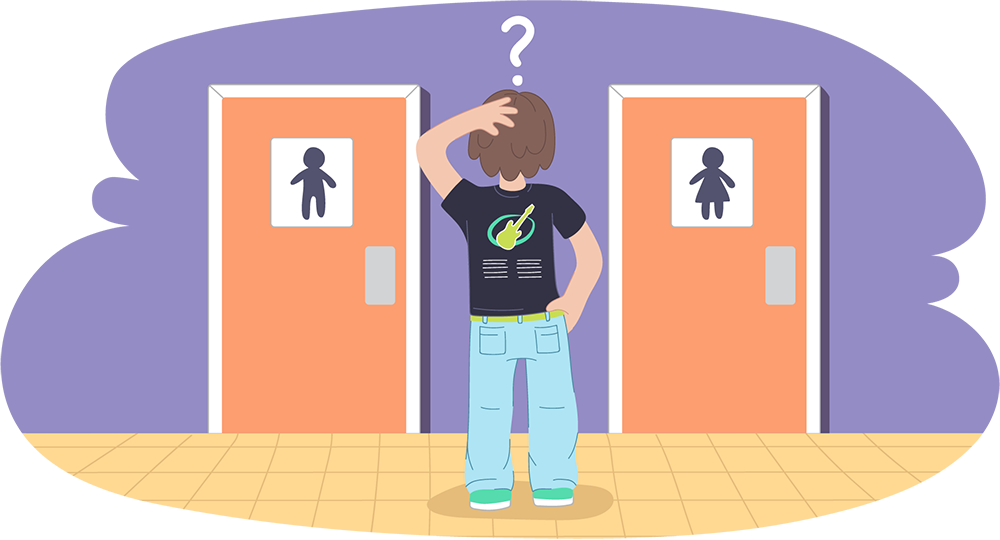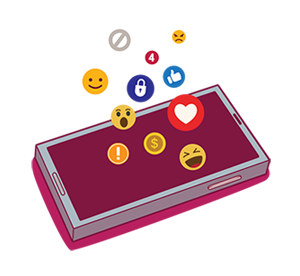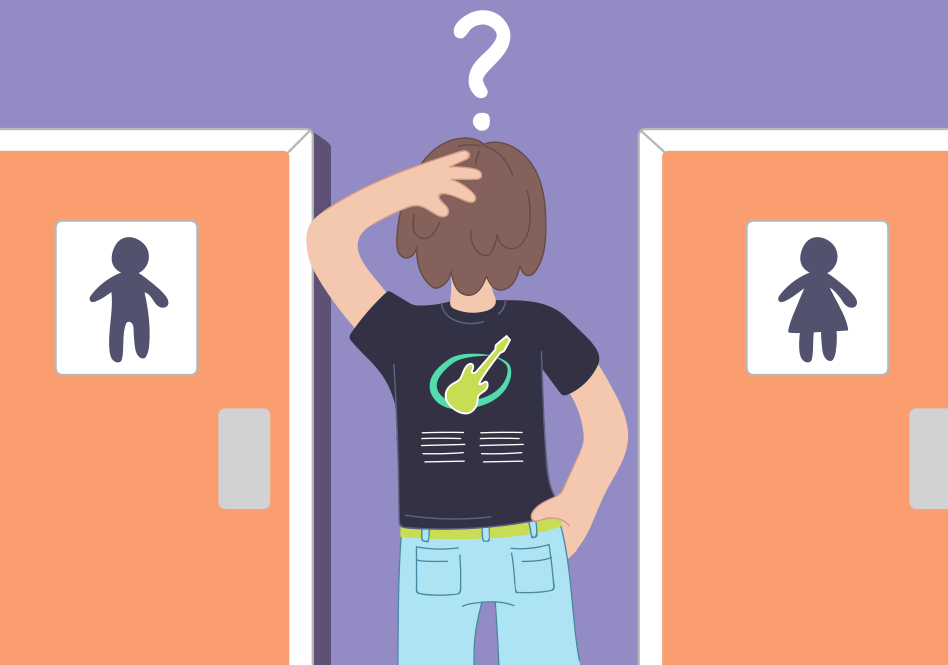Gender Identity
There’s more to gender identity than being male or female. Learn more about the spectrum of gender identities out there.

This article was written and reviewed by people in the LGBTIQA+ communities.
What is Gender Identity?
Gender identity means how you personally experience your own gender. Although it might seem straightforward, it's affected by many factors.
- Sex can mean different things. It can refer to our biological sex characteristics, like genitals and chromosomes. It can refer to an assigned sex, made by a doctor at birth depending on our visible sex characteristics. It can refer to a legal status, assigned at birth or changed during our lives. It is often assumed a person’s assigned sex determines their gender, but the reality is more complex.
- For example, people born with intersex variations may have what are considered ambiguous genitals or internal sex organs, sex hormones, and chromosomes different to what is “typical” for a male and female body.
- Most societies believe there are only two genders that people identify with in terms of their assigned sex, gender identity and gender expression: male and female. The belief that there are only two genders and that gender is fixed is called the gender binary.
- Gender is affected by the expectations and stereotypes society holds about the thoughts, characteristics and behaviours you will have based on your assigned sex. For example, most societies expect males to act “masculine” and females to act “feminine”. Each culture has different expectations about gender that affect a person’s social, work and legal privileges.
- By a very young age, most children know what their core gender identity is and find it extremely difficult to think about themselves in any other way. People who feel pressure to follow the gender binary can experience an extreme form of distress called gender dysphoria.
- Gender identity is about how you personally experience your own gender, regardless of what society expects. Your gender can be shown through your identity (eg. labels, pronouns), body (eg. appearance) and expression (eg. how you act, how you dress). Feeling able to express your true gender identity is important to your emotional and mental health.
- Gender identity is not fixed and exists on a spectrum. So people may identify as one of the binary genders, as moving between genders, as no gender or as another gender category entirely.
What is the difference between Gender Identity and Sexual Identity?
Gender identity and sexual identity are often confused, but it’s important to understand how they are different.
Gender identity is about how we see ourselves in terms of gender. Whereas sexuality is about who we’re emotionally, physically and romantically attracted to.
Bodies are different again to both gender identity and sexuality. Our identities are informed by our bodies and the experiences we have, but our bodies don’t define everything about us.
Confusing gender identity and sexual identity often results in people making inaccurate assumptions about other people, which can affect how well we understand and communicate with others.
For example, when someone’s gender expression is different to what people expect, they are often assumed to be gay or lesbian. Like men who work as hairdressers or women who work as mechanics.
Confusion about gender identity and sexuality can also make it harder for people to understand themselves. Like Trans or gender diverse people who think they must be gay, lesbian or bisexual until better understanding their gender identity.
Trans and gender diverse people may at any given time change their sexuality to be affirming of their gender identity. Like a straight male who transitions to female and continues to want sexual and emotional relationships with women might redefine their sexuality as lesbian.
I’m questioning my gender identity. Is it normal to feel…?
Understanding yourself takes time and so it’s normal to have uncertain or conflicting thoughts and feelings about your gender identity. But keep in mind:
- It’s not “just a phase” and you’re not “just confused”. From very early on, children are able to articulate their core gender identity and find it extremely hard to think of themselves in any other way.
- Even if you start feeling comfortable expressing your gender identity, people may try to fit you into boxes. Remember, gender is about much more than the gender binary.
- Gender identity isn’t set in stone. Understanding yourself takes time and it’s normal to change your mind many times about how you define and express your gender identity before things ‘feel right’ for you.
Realising that your gender identity doesn’t fit the roles, expectations and stereotypes people have of your assigned sex - can be confusing and upsetting. As a result, you may feel pressured or scared about expressing your gender identity.
Because of fears about discrimination, many people feel pressured or scared about expressing their gender identity and may choose to conceal this to fit in. Even for those who express their gender identity openly, there can be continued challenges with: stress about “not fitting in” or being able to express themselves safely; feeling invalidated when their gender doesn’t fit stereotypes or; discrimination.
In either case, when people don’t feel free to express their gender identity it can increase their gender dysphoria and lead to the development of mental and physical health problems.
On the positive side, feeling able to express your gender identity by building a supportive network of people who accept you for who you are – can feel validating and liberating!
What can I DO to help me feel more comfortable expressing my gender identity?
If you want to start expressing your gender identity, but are unsure what steps you can take, here are a few ideas that may help:
Check these out too:
Sexual Identity
Relationships come in many forms. Learn more about sexuality and the different ...
READ MESexual, gender and bodily diversity discrimination
Many LGBTIQA+ people face discrimination and prejudice that can affect their health, ...
READ MEExpressing your feelings
Expressing how you feel can help you cope when life throws you ...
READ MEHow to ask for help
Sometimes we need help but we're not able to ask for it. ...
READ ME
Talking helps! We’re here for you.
No problem is too big or too small.
We're here 24 hours a day, 7 days a week






